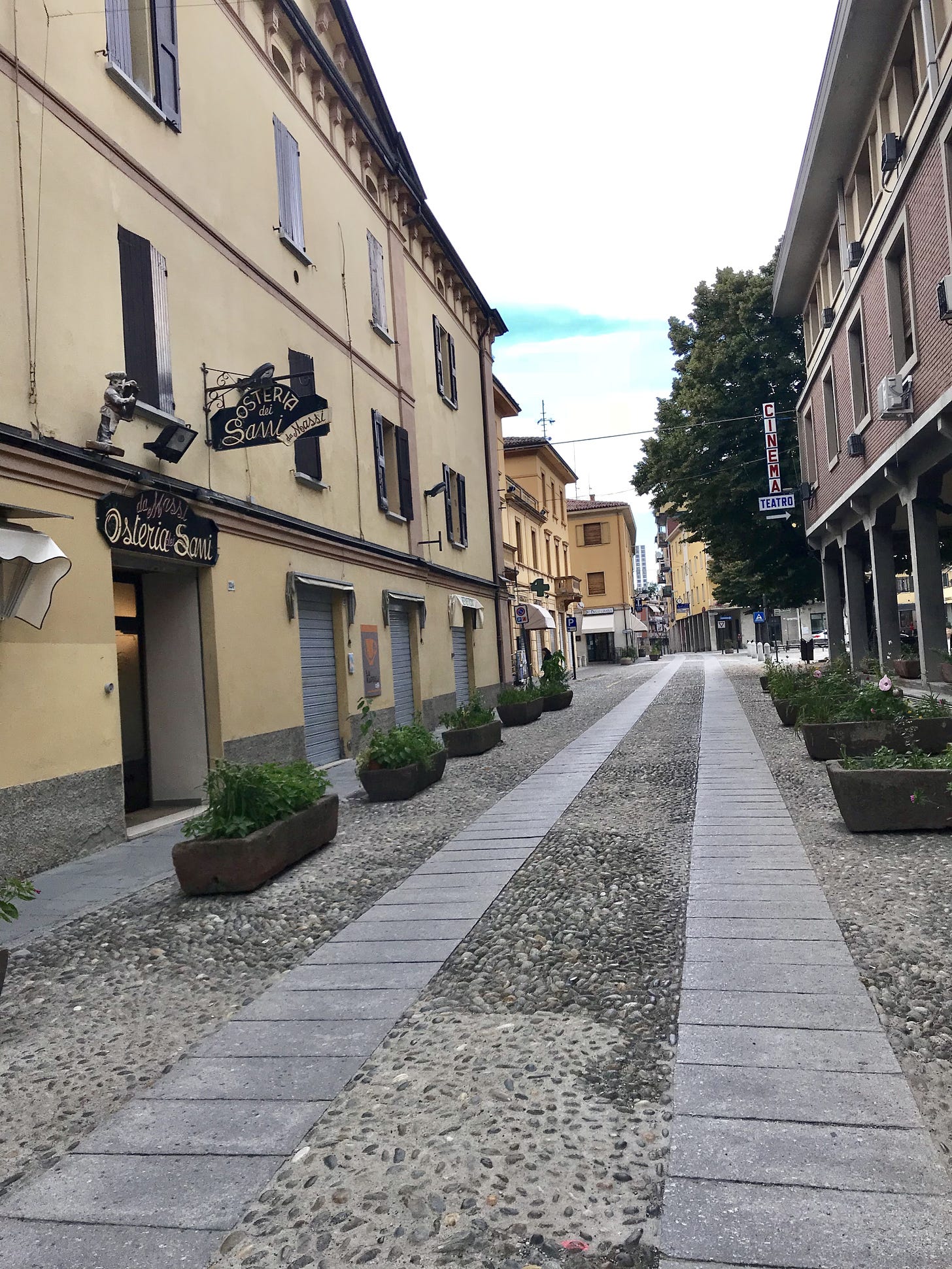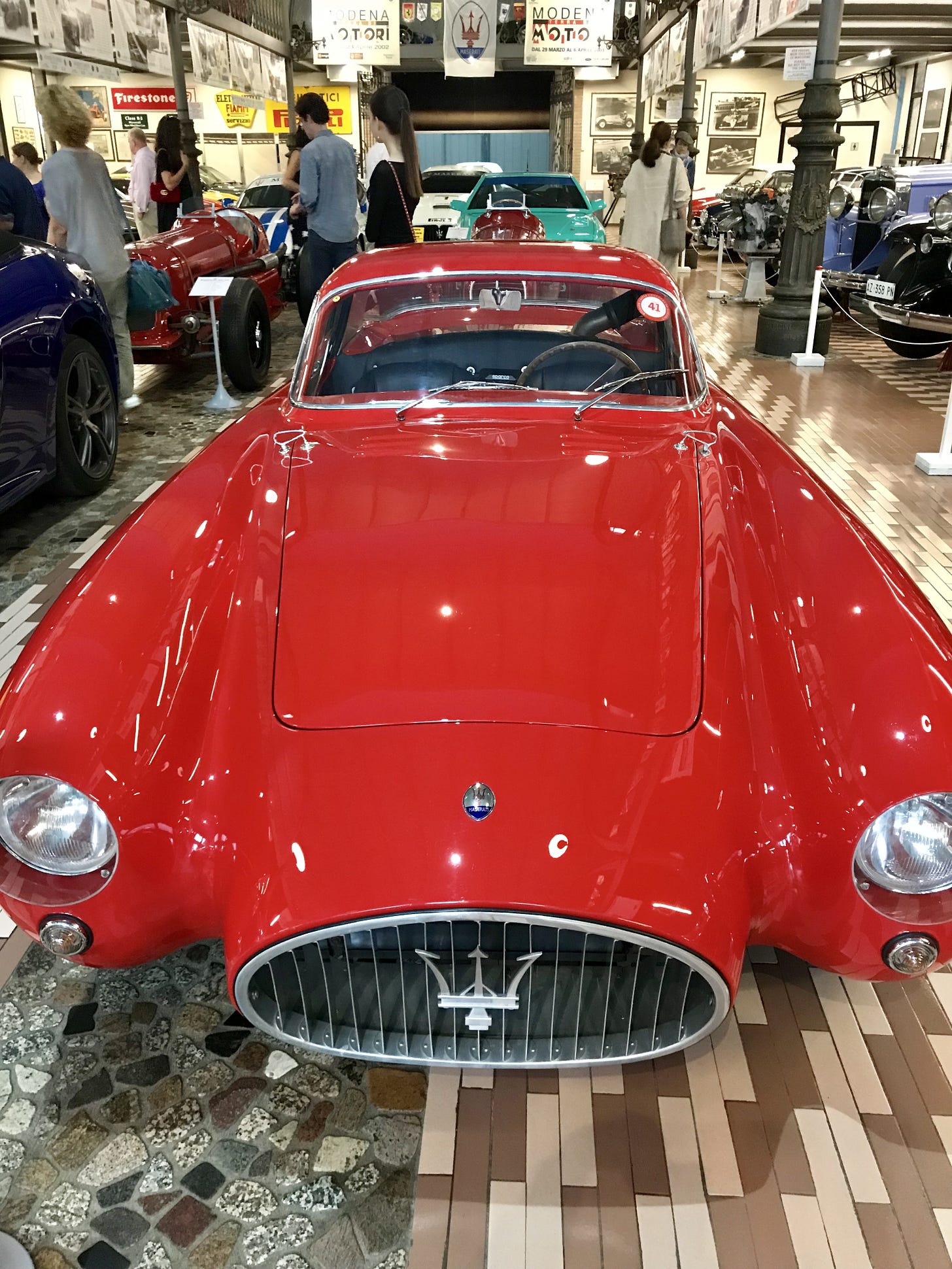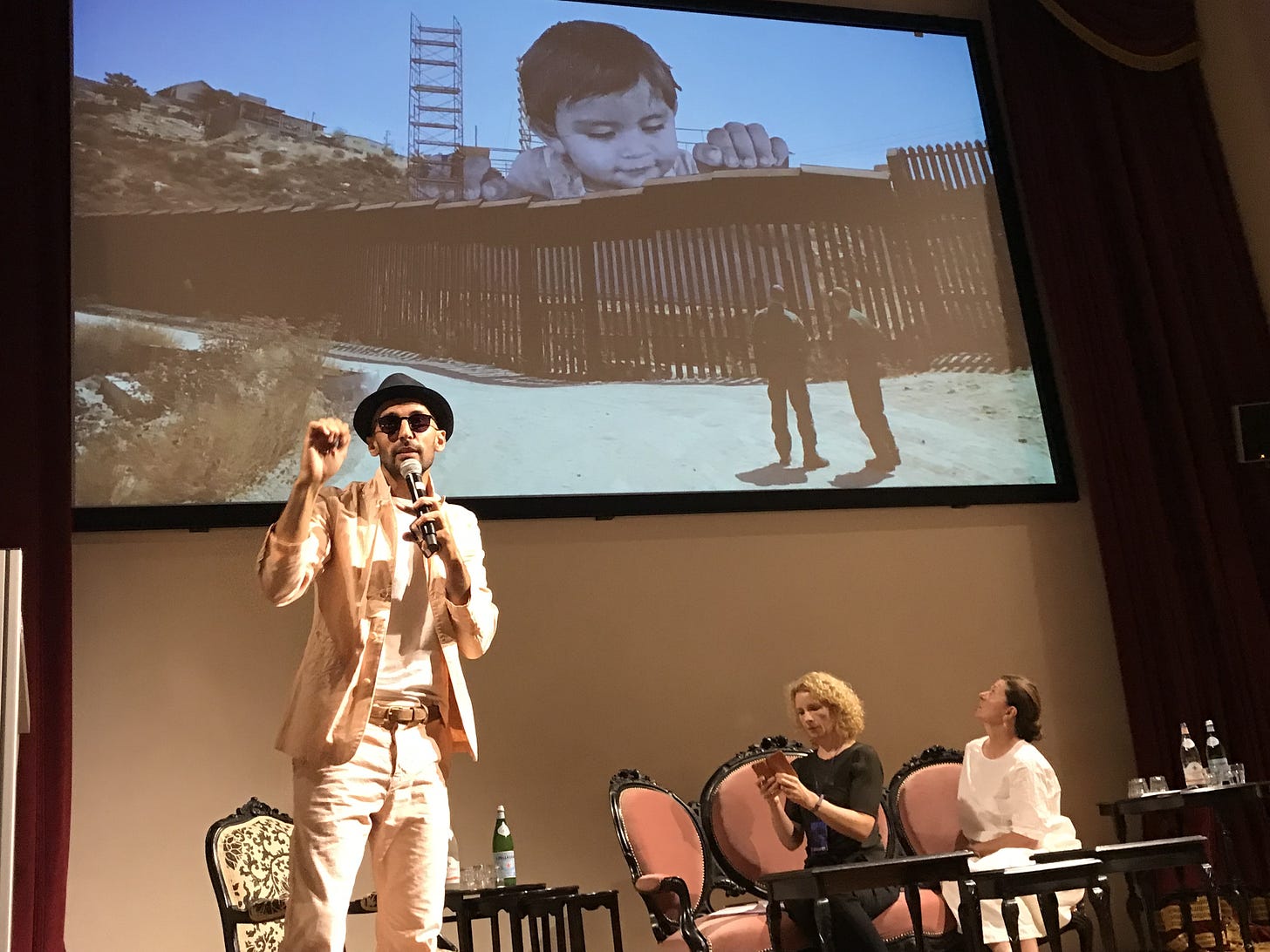Til Now, Part 2
We didn't sleep. We couldn't. We sat up, Michael and Nancy and I, drinking wine, worrying about Laurie and the kids until the sun came up. Jonathan was gone, and it was hard to be half a world away.
And I still had the Basque Culinary World Prize ahead of me.
Michael, kindly, offered to drive me all the way from Umbria to Modena. It was a long drive. Passing Florence we said, "we should pull off and eat," but we weren't hungry. A couple hours later, however, we knew we couldn't make it all the way without stopping for a bite. As we pulled off, in the little town of Sasso Marconi, we were feeling foolish: Jonathan would have had a plan, known exactly where to go - even if it meant a three hour detour along a goat path.

The streets were empty. Not a soul stirred, nor a breath of wind. And so we went into the first restaurant we found. To our astonishment the place was packed, alive with life, with noise, with music. The whole town was there, sharing food, indulging in a long leisurely Sunday lunch.

Let me just say that this was instant proof that every restaurant in Italy does not serve good food. Jonathan would have been amused to see me scoop everything into my (now soggy) purse and run outside to feed it to a passing dog. We drove on. To Modena, for the Basque Culinary World Prize.

The opening party for the event was at Hombre Parmesan - which not only makes extraordinarily fine organic cheese, but also houses an astonishing collection of vintage automobiles. This Mazzerati from the fifties is sometimes called the most beautiful car ever made. With good reason.

The food was fantastic. Huge shards of that fine parmesan splashed with Massimo Bottura's private balsamic vinegar (you can see how thick it has become with age). Gnocco fritto cooked in great vats of lard, snatched from the cauldron and topped with prosciutto whose lacy began to slowly melt. Freshly made, still-warm ricotta. There was more - so much more - but I couldn't stop eating those crisp, salty, warm gnocco fritti.
Still couldn't sleep. Tossed and turned all night, wishing I were in Los Angeles. Spent the next day deliberating over the prize at the gorgeous Villa Maria Luigia, which Massimo Bottura and Lara Gilmore are soon to open.
The Basque Culinary World Prize, which is supported by the Basque Government, is dedicated to the notion of gastronomy as a transformative force. Every single nominee is doing something impressive; it makes me proud that we've come to a time in human history when we understand that food can be more than something to eat, a time when celebrated chefs do more than invent new recipes. I wanted to award the prize to every one of these impressive chefs, who are dedicated to feeding immigrants, eliminating waste, inventing new ways to feed the ill, and supporting indigenous populations. In the end the 100,000 euro prize went to Jock Zonfrillo, who is doing extraordinary work with the native foods of Australia.
Lunch and dinner were both provided by Osteria Francescana - and were both extraordinary. (Massimo's "Tribute to the Amalfi Coast," above, may be my favorite form of desert.) For a few highlights from the meals, read this.
The following day was dedicated to a conference called "Transforming Society Through Gastronomy," a day of fascinating talks by a group of diverse people from the artist JR, talking about the table he set up on the US/Mexico border

to the always erudite historian Bee Wilson, chef Andoni Luiz Aduriz taking us on a stroll through history and filmmaker David Gelb with an interesting take on Chef's Table. My subject was meant to be "an edible truth" but when I stood up to speak, all I could think about was Jonathan. Here's an excerpt:
"I had a speech written for today, a speech in which I was going to talk about what is, in my opinion, the gravest danger facing food journalists today: the danger of telling the wrong stories. I was going to talk about how much we’ve muddied the waters by relating what seem like truths, only to find out a few years down the road that they were the wrong truths. That we’d been misled by science, by politics, by marketing. And that in the face of all the serious problems today, we have, perhaps, so confused the public that they’re no longer listening to us.
I was going to say that in these times, more than ever, people need real news, news they can use to fix our broken food system. I think we can all agree that there has never been a time in human history when we were in so much need of the facts each time we sit down to eat. We all keep asking the question _ what should we eat? Never have the answers been so confusing.
You all know the problems. They’re the ones many of the candidates for the Basque World Prize are trying to solve: food waste, food distribution, hunger, poverty, obesity, the devastation of the oceans, carbon dioxide in the air, water, climate change, overuse of antibiotics. Our food is being threatened from everywhere.
But I landed in Italy to such terrible news that I just can’t give that speech right now. I got off the plane to learn that my longtime colleague and friend, Jonathan Gold, was dying. That I’d never see him again. And so for the past few days I haven’t been able to think about anything but Jonathan. Which is probably appropriate to this conference. Because the mission of the Basque Culinary World Prize is using gastronomy as an engine for change – and I don’t think anyone has ever done that better than he did."
I went on to talk about Jonathan's legacy. And I ended like this:
"Jonathan not only showed us a new way of looking at food, but also proved that you don’t need television or a movie to make an impact. Every time he put pen to paper he proved the power of words.
I know there are a lot of writers in this room. And I hope you’ll all remember Jonathan’s most important legacy. What Jonathan showed us – more than anything – is what food writing can do. In the hands of a passionate, talented writer, words can become powerful weapons.
Last week I thought that what we needed were more investigative writers telling us the truth. And that is certainly true. But now I see that sometimes the softest words can make the biggest impact. Jonathan wrote about delicious dishes in far-flung neighborhoods. He did not write an overtly political word. And yet he touched millions of people and gave them a new way to experience their own city. Those of us who want to change the world would do well to remember that sometimes the stories that seem very small are actually the biggest ones of all."



